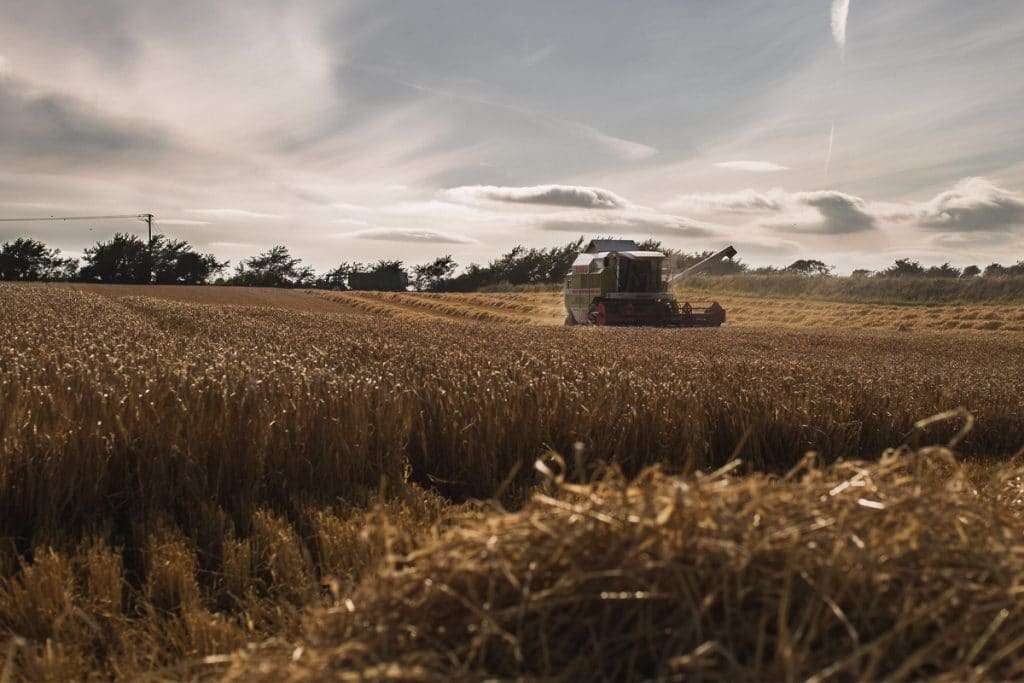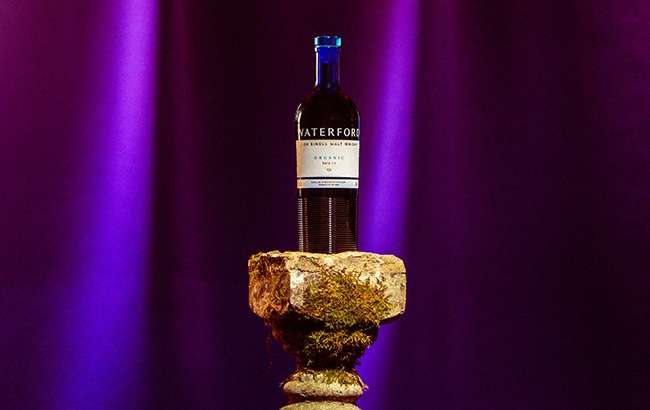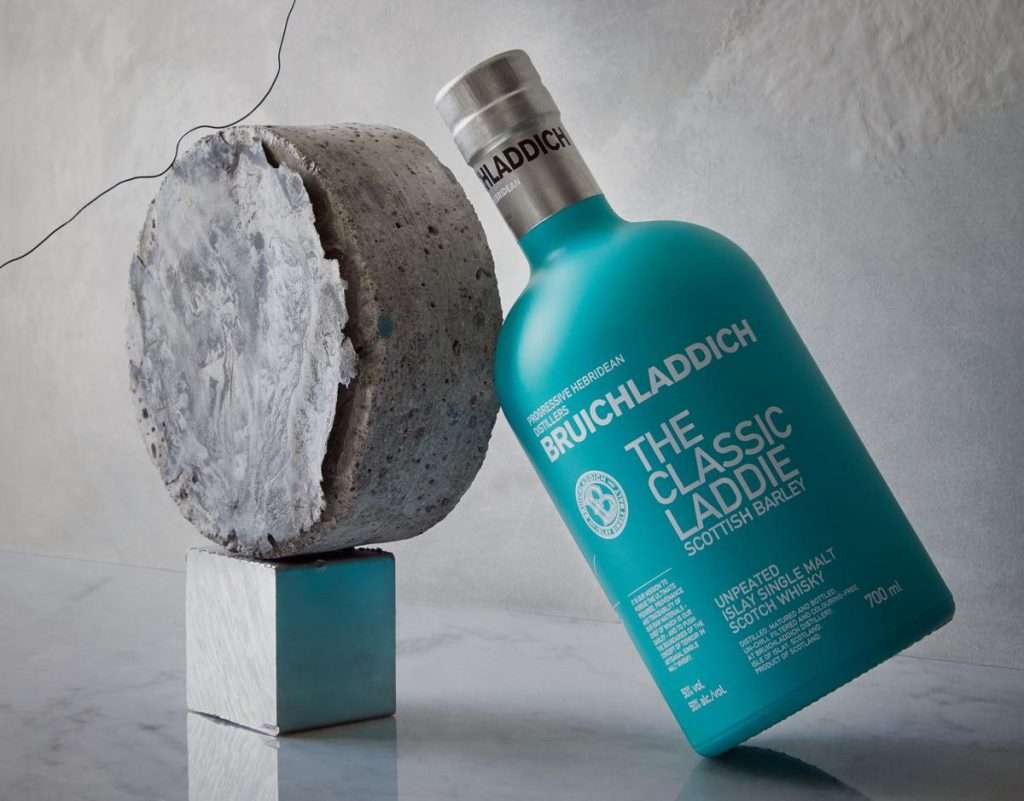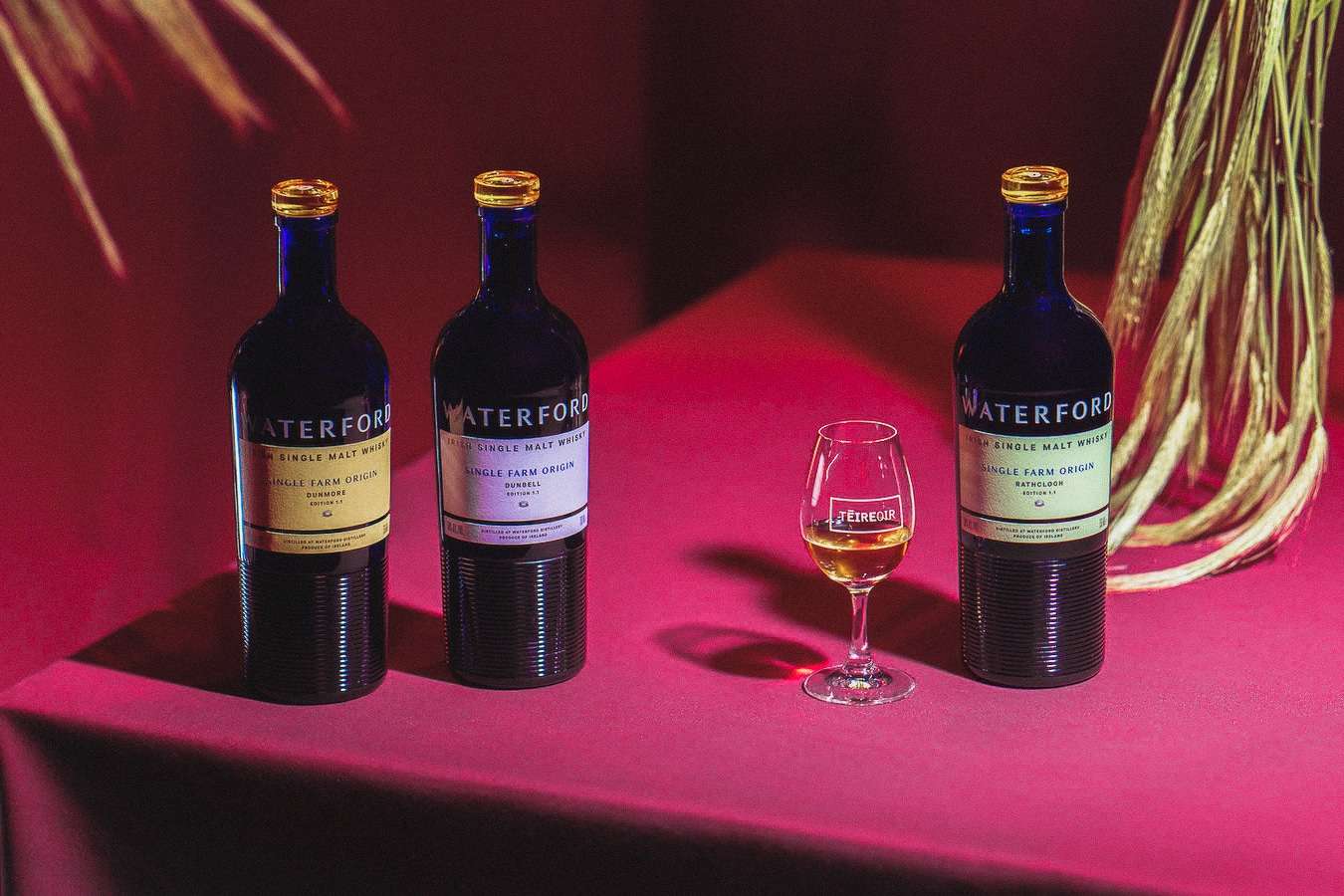For Scotland’s Bruichladdich Distillery and Ireland’s Waterford Distillery, biodynamic whisky is both a terroir flavor renaissance and a means to fight climate change.
More than a decade ago, Scotland’s Bruichladdich Distillery distilled its second small-batch experiment: its first biodynamic whisky. The goal? A soil-saving spirit that’s as smooth as it is mission driven.
“Can whisky help save our soils?” Bruichladdich asks. “In this world-first biodynamic Scotch whisky release, we have hope that it can,” it says on its website.
The ten-year aged whisky’s launch follows just weeks after Irish whiskymaker, Waterford Distillery, the world’s largest organic whisky producer, launched its first biodynamic single-malt Irish whisky, Luna—a launch the company says it part of the “radical” biodynamic farming philosophy lauded by some of the world’s most legendary winemakers.
Biodynamic farming
The distilleries are taking a cue from one of the hottest trends in the wine industry: biodynamic farming, which relies on organic growing principles as well as enhancements and care that improve the biodiversity and sustainability of soil.
According to AgWeb‘s Stephanie Mercier, carbon in the soil plays a number of important roles. “It improves soil health so that the soil is more productive, has better structure, can retain more water and nutrients, and is less prone to erosion,” Mercier says. “In short, increasing the carbon stored in soils makes agricultural operations on cropland, pastures and grazing land more resilient in a dynamic world.”
Biodynamic principles have been in practice in the wine industry, for several years, but for whisky, it’s a relatively new concept.
Much of that has to do with the typical decades-long aging periods for whisky. While some can age as few as two to four years, top shelf brands will age a decade or more. It’s only in recent years that soil health has become a priority—even for rapid aged whiskies, the conversation about soil is only a few years old.

Credit for that conversation can go in large part to Kiss the Ground the celeb-backed 2020 documentary about soil health. Woody Harrelson narrated the film that counts Leonardo DiCaprio and Ian Somerhalder as executive producers.
“This is a paint-by-numbers way of how to stop climate change,” Somerhalder, the Vampire Diaries actor told The Weather Network. He says how we manage soil has “the potential to balance our climate, replenish our vast water supplies, and feed the world.”
The film inspired Somerhalder and fellow Vampire Diaries star Paul Wesley, co-founders of Brother’s Bond Bourbon, to support the film’s 501(c)(3), Kiss the Ground. The company, which launched last spring, made a $50,000 donation to the nonprofit.
“When we started Brother’s Bond, it was important to us to work alongside partners who shared the same values as us as it pertains to not just sustainable practices, but regenerative practices,” Somerhalder said in a statement.
“We firmly believe companies can and will be the change-makers to reverse climate change, backed by consumers. By working with partners that use sustainable and regenerative practices up and down supply chains globally we will all build a bright and livable future. Kiss the Ground is an organization [Paul Wesley] and I have been passionate about for years, and we are extremely proud to support their robust and important work.”
Waterford’s biodynamic whisky
Ireland’s Waterford Distillery is the world’s largest producer of organic malt whisky. Its first biodynamic whisky comes as part of its quest for both the most sustainable and natural offering.
The company’s three Irish growers, Trevor Harris, John McDonnell, and Alan Mooney incorporate growing principles established nearly a century ago by Austrian polymath Rudolf Steiner. Practices include fermenting manure deep underground and following the rhythms of the lunar calendar. The purpose, Waterford says, is to create vibrant and chemical-free “living” soil.

Mark Reynier, Waterford Distillery CEO, says the farming shift that happened in the wine industry, which came after “decades of agro-chemical excess and the race for yield over quality,” led to a renaissance of terroir and modern winemaking. “Out of this, biodynamics blossomed—a new philosophy that at first seemed outlandish, but after tasting the results increasingly proved its worth. Biodynamics is, after all, merely a self-contained farming system, but one that consists of the culmination of 16,000 years of agricultural optimisation—trial and error, life and death—before the vicissitudes of industrialisation and intensification dumbed down individuality,” he says.
“During my career I’ve had the fortune to taste the world’s greatest wines, it’s no surprise to see the ever-increasing adoption of biodynamics in the search for intensity and purity of flavor. If for the grape, why not the grain?”
Bruichladdich’s biodynamic whisky
Bruichladdich also points to the benefits of biodynamic farming as extending beyond just making the whisky more sustainable—it also makes for better flavor. The Scottish distillery is known for exploring terroir effects on its whisky, having experimented with single-farm and single vintage whiskies.
The “farmer to glass” Biodynamic Project was aged ten years in first-fill bourbon casks from Westminster barley harvested in 2010; because there were no biodynamic producers in Scotland at the time, it sourced from Yatesbury House Farm in Wiltshire, England.

According to Bruichladdich, the whisky has aromas of “ripe peach, vanilla custard, candied orange, turkish delight, dried apricot, brown sugar, barley straw, crisp apples, poached pears, and syrup.” The taste has “a succulent mouthfeel, with peaches, creamy vanilla, caramel chocolate, gentle oak, floral notes, honeysuckle, rose, and geranium.” It finishes with “citrus notes, marine air, toffee, and long lasting notes of malt sugar and porridge.”
“The flavour of the biodynamic, from when it was first distilled through to maturation is superb,” says head distiller Adam Hennett. “There is a wonderful elevation of the fruity character of Bruichladdich with the biodynamic malt.”


